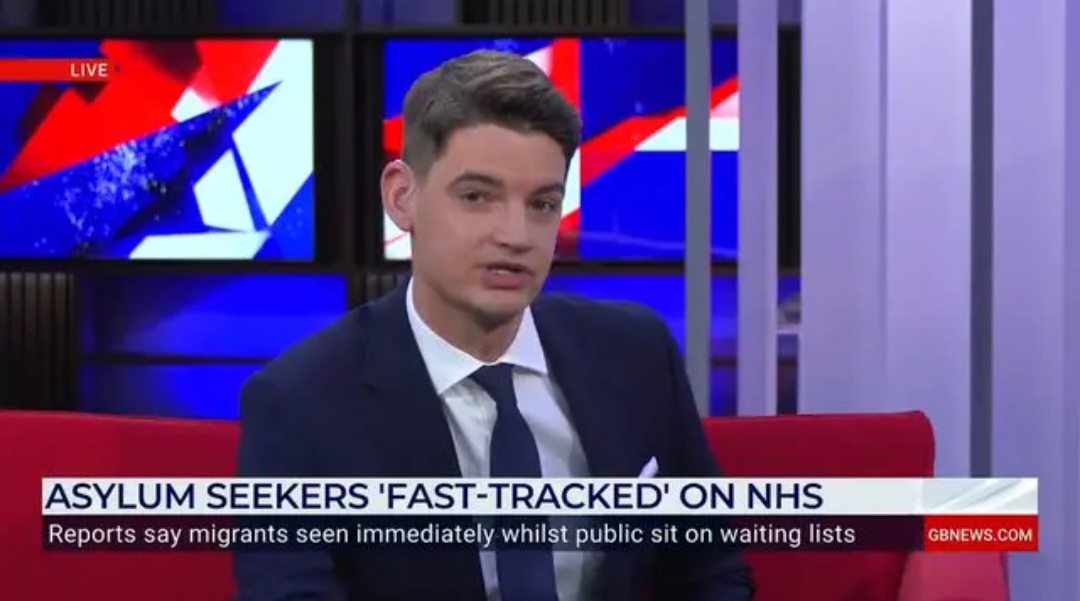
A lively argument unfolded on GB News as presenter Ben Leo and guest Andy McDonald debated whether asylum seekers should be given “fast-tracked” access to NHS services. The discussion touched on a new scheme that prioritizes urgent care for vulnerable patients, including asylum seekers, raising questions about fairness and resources within the NHS.
The debate stemmed from reports that some NHS hospitals have started giving priority care to asylum seekers through an initiative called *987 Inclusion Health*. This program allows vulnerable patients, such as undocumented migrants, to request urgent appointments at A&E. The move comes as the NHS struggles with record-high waiting lists, with millions of UK residents waiting for care—some for up to 18 weeks.
Andy McDonald defended the scheme, arguing that it’s reasonable to prioritize genuine asylum seekers who come from dangerous and vulnerable situations. “If you’re a genuine asylum seeker, then yeah, I don’t think it’s the biggest outrage in the world. These people are in a very vulnerable state,” Andy said. He also explained that asylum seekers are treated in special units with dedicated doctors, which naturally gives them faster access to care.
However, Ben Leo pushed back, questioning whether it was fair for asylum seekers, including those arriving by small boats, to receive faster treatment than British citizens. “You think it’s fair that asylum seekers are fast-tracked above native Brits?” he asked, visibly surprised by Andy’s stance.
Andy responded by challenging Ben’s use of the term “native Brits,” suggesting that the focus should be on vulnerability, not nationality. But Ben insisted that prioritizing non-British patients over British citizens would be seen as unfair by many people. “I think it’s going to be shocking for a lot of people to hear that you think this is acceptable,” Ben said.
Andy stood firm, saying the fast-tracking isn’t about favoritism but about addressing the unique needs of asylum seekers, many of whom arrive in the UK with serious health challenges after fleeing unsafe conditions. “They’re being seen sooner because of the nature of how they got to the country. It’s not shocking, Ben,” he explained.
The debate highlighted a broader issue: the tension between helping vulnerable groups like asylum seekers and meeting the needs of millions of UK residents facing long waits for care. While Andy argued for compassion and practicality, Ben voiced concerns about fairness and the strain on NHS resources.
The exchange left viewers divided, with some supporting the idea of prioritizing the most vulnerable and others questioning whether the system is fair to British citizens already struggling to access healthcare. The topic remains a sensitive and complex issue, reflecting broader debates about immigration, healthcare, and resource allocation in the UK.




